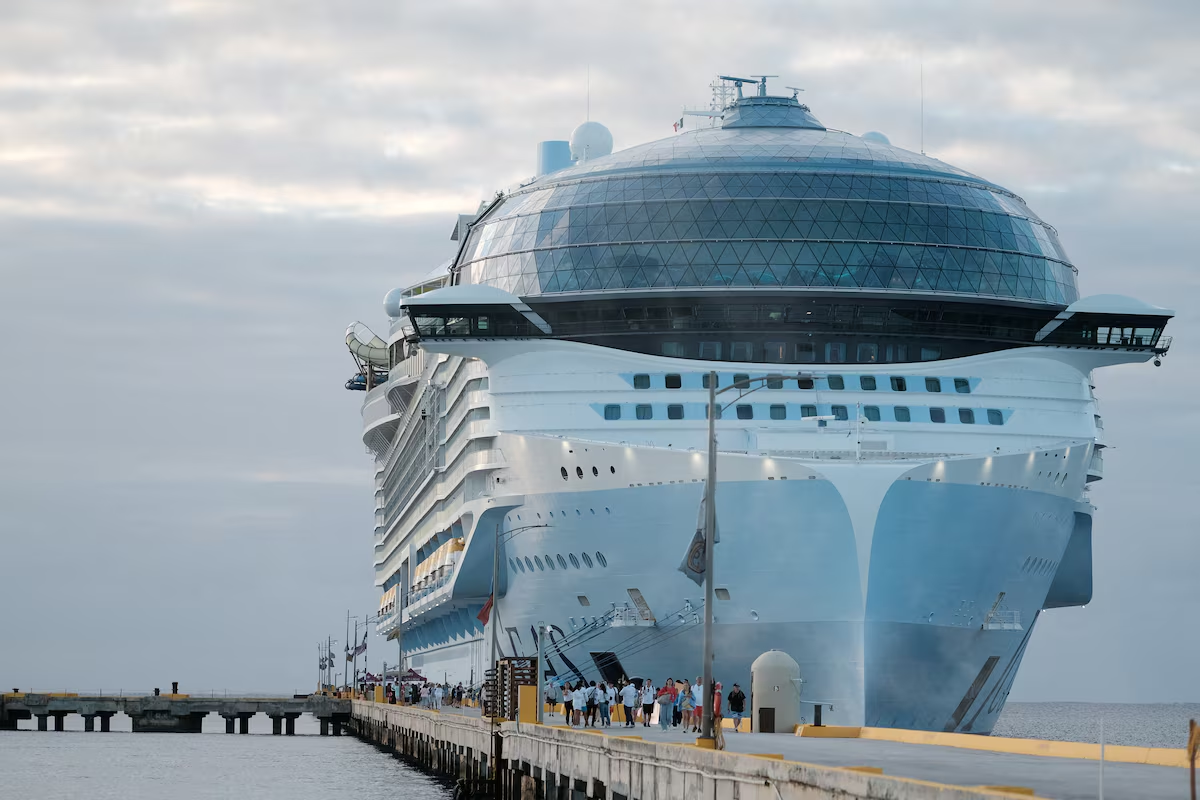Mexico’s Senate votes to charge cruise ship passengers $42 each for port calls
 Tourists leave Royal Caribbean’s Icon of the Seas after arriving at Costa Maya Cruise Port on Feb. 6.Paola Chiomante/Reuters
Tourists leave Royal Caribbean’s Icon of the Seas after arriving at Costa Maya Cruise Port on Feb. 6.Paola Chiomante/Reuters
Mexico’s Senate has voted to charge cruise ship passengers $42 per head for port calls, drawing sharp criticism from the tourism industry.
Mexican business chambers say the immigration charge – from which cruise passengers used to be exempt – may hurt the country’s half-billion-dollar-per-year cruise industry.
The measure approved late Tuesday has already been passed in the lower house and will go into effect in 2025. The changes were part of a bill that also increases airport immigration charges and entry fees for nature reserves.
Mexico’s Caribbean coast is home to Cozumel, the busiest port of call for cruise ships in the world. The National Confederation of Commerce, Service and Tourism Chambers said the $42 charges could make other countries’ Caribbean ports more competitive than Mexico’s.
“This could result in a significant decrease in visitors,” Octavio de la Torre, the president of the federation, said Monday.
In the past, cruise ship passengers were exempted from the immigration fee, because they slept aboard the vessels and some didn’t even get off the ship during port calls. Now, even those people would apparently be charged the $42 fee, according to the new law.
There have been initiatives throughout the world to curb cruise ships for fear of over-tourism, but that train left the station long ago in the case of Mexico’s Caribbean coast. Cozumel has been the world’s busiest port of call for years, welcoming about four million cruise passengers per year.
Two-thirds of the money raised would go to the Mexican army, not to improve port facilities.
The Mexican Association of Shipping Agents cried foul last week.
“If this measure is implemented, it would make Mexican ports of call among the most expensive in the world, severely affecting their competitiveness with other Caribbean destinations,” the association said in a statement.
Mexico’s ruling Morena party is already running enormous budget deficits to fund its favourite building projects like railways and oil refineries – some of which are being built by the army. The government is desperate to find new revenue sources.

